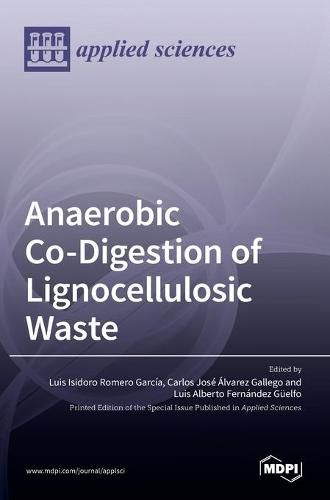Readings Newsletter
Become a Readings Member to make your shopping experience even easier.
Sign in or sign up for free!
You’re not far away from qualifying for FREE standard shipping within Australia
You’ve qualified for FREE standard shipping within Australia
The cart is loading…






This title is printed to order. This book may have been self-published. If so, we cannot guarantee the quality of the content. In the main most books will have gone through the editing process however some may not. We therefore suggest that you be aware of this before ordering this book. If in doubt check either the author or publisher’s details as we are unable to accept any returns unless they are faulty. Please contact us if you have any questions.
Some terms, such as eco-friendly, circular economy and green technologies, have remained in our vocabulary, because the truth is that mankind is altering the planet to put its own subsistence at risk. Besides, for rationalization in the consumption of raw materials and energy, the recycling of waste through efficient and sustainable processes forms the backbone of the paradigm of a sustainable industry. One of the most relevant technologies for the new productive model is anaerobic digestion. Historically, anaerobic digestion has been developed in the field of urban wastes and wastewater treatments, but in the new challenge, its role is more relevant. Anaerobic digestion is a technologically mature biological treatment, which joins bioenergy production with the efficient removal of contaminants.
This issue provides a specialized, but broad in scope, overview of the possibilities of the anaerobic digestion of lignocellulosic biomass (mainly forestry and agricultural wastes), which is expected to be a more promising substrate for the development of biorefineries. Its conversion to bioenergy through anaerobic digestion must solve some troubles: the complex lignocellulosic structure needs to be deconstructed by pretreatments and a co-substrate may need to be added to improve the biological process.
Ten selected works advance this proposal into the future.
$9.00 standard shipping within Australia
FREE standard shipping within Australia for orders over $100.00
Express & International shipping calculated at checkout
This title is printed to order. This book may have been self-published. If so, we cannot guarantee the quality of the content. In the main most books will have gone through the editing process however some may not. We therefore suggest that you be aware of this before ordering this book. If in doubt check either the author or publisher’s details as we are unable to accept any returns unless they are faulty. Please contact us if you have any questions.
Some terms, such as eco-friendly, circular economy and green technologies, have remained in our vocabulary, because the truth is that mankind is altering the planet to put its own subsistence at risk. Besides, for rationalization in the consumption of raw materials and energy, the recycling of waste through efficient and sustainable processes forms the backbone of the paradigm of a sustainable industry. One of the most relevant technologies for the new productive model is anaerobic digestion. Historically, anaerobic digestion has been developed in the field of urban wastes and wastewater treatments, but in the new challenge, its role is more relevant. Anaerobic digestion is a technologically mature biological treatment, which joins bioenergy production with the efficient removal of contaminants.
This issue provides a specialized, but broad in scope, overview of the possibilities of the anaerobic digestion of lignocellulosic biomass (mainly forestry and agricultural wastes), which is expected to be a more promising substrate for the development of biorefineries. Its conversion to bioenergy through anaerobic digestion must solve some troubles: the complex lignocellulosic structure needs to be deconstructed by pretreatments and a co-substrate may need to be added to improve the biological process.
Ten selected works advance this proposal into the future.